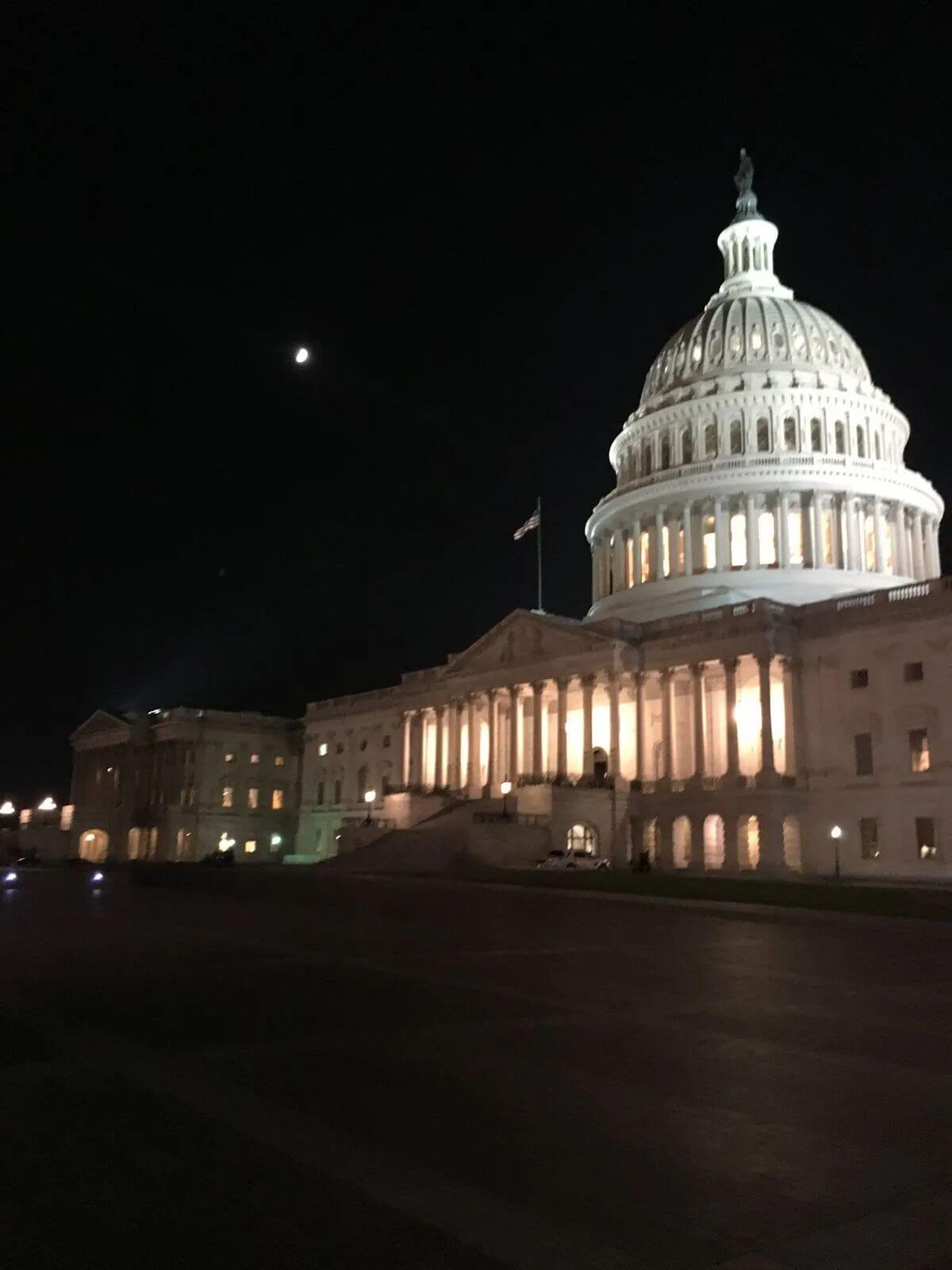3/4 Torchbearer Weekly Policy Update
Republican Gubernatorial Candidates Trade Jabs at First Debate

The first gubernatorial debate of the cycle gave the six Republican contenders in a highly competitive primary the opportunity to attack one another. U.S. Sen. Mike Braun, Brad Chambers, Lt. Gov. Suzanne Crouch, Eric Doden, former Attorney General Curtis Hill, and Jamie Reitenour took turns elevating themselves above their peers with interspersed jabs at opponents.
Why it matters: The debate allowed the candidates to differentiate themselves and appeal to voters in the highly contested primary race. Voters got a chance to see how the candidates handle themselves under pressure and get a sense of their policy positions.
The big picture: The debate provided a snapshot of the current political landscape in Indiana and the priorities of the Republican candidates. It showcased the diversity of opinions within the party and highlighted the key issues that will shape the race.
What's next: The candidates will continue to campaign and participate in upcoming debates to further solidify their positions in the race. Voters will have more opportunities to assess the contenders and make informed decisions in the May primary election. (IBJ)
Fund Helps Hoosier Employers Expand Child Care Options for Employees

More employers are taking it upon themselves to help workers find childcare, a costly service that can be elusive for working Hoosier parents.
Why it matters: A lack of childcare prevents parents from going to work, which leads to problems like housing insecurity, food insecurity, and a lack of health care.
By the numbers: In Indiana, the average annual cost of childcare for an infant is $12,612, according to the Economic Policy Institute. Parents of a 4-year-old child pay an average of $9,557 per year. Additionally, 55% of Hoosiers live in a childcare desert where there are too few licensed slots for the number of children who need care.
The big picture: State leaders and the Indiana Chamber of Commerce worked to involve employers in the childcare process to lower costs and increase availability to workers. Employers are now considering child care as part of a holistic benefits package in a challenging labor market.
Yes, but: Employers don't want to operate childcare facilities but are realizing they have a role to play in easing the burden on employees who are parents.
What's next: The Employer-Sponsored Child Care Fund awarded $25 million to 86 Indiana-based companies to create on-site or near-site childcare programs. Employers are now focused on implementing their proposals and building upon their child care systems. (IBJ)
U.S. to Send Ukraine $300 Million Arms Package as Further Aid Stalls

The Biden administration has announced that it will send an additional $300 million in security assistance to Ukraine. This emergency package, funded by 'unanticipated cost savings' from Pentagon contracts, includes artillery shells, anti-armor weapons, antiaircraft Stinger weapons, and spare parts.
Why it matters: This aid is crucial for Ukraine to hold the line against Russian attacks and push back against continued Russian aggression. It provides much-needed support to Ukraine's front-line units, which are facing dwindling supplies and a renewed push from Russian forces.
By the numbers: The aid package includes medium-range cluster rounds from the Army Tactical Missile System (ATACMS). These rounds have a range of about 100 miles and have been used by Ukrainian forces to target Russian headquarters and troop formations.
The big picture: The announcement of this aid package reflects the Biden administration's commitment to supporting Ukraine's fight against Russian aggression. It also highlights the urgent need for Congress to pass additional funding for Ukraine's defense.
What's next: The Biden administration is urging Congress to swiftly pass the supplemental appropriations request for Ukraine's defense. In the meantime, the aid package will help sustain Ukraine's forces for a period of weeks. (Washington Post)
"Monumental" Legislative Session Looms

The 2024 legislative session is over. So, naturally, it's time to look ahead to next year.
Why it matters: The Indiana General Assembly has already set up what one Statehouse leader called a "monumental" agenda for next year's budget-writing session.
The big picture: Indiana's Legislature writes a state budget every two years.
- Non-budget years, like this one, have shorter sessions to tackle only urgent issues and make policy tweaks that won't have a fiscal impact.
- Budget years are when lawmakers typically pursue larger, substantive issues because those generally involve funding.
Reality check: Recent short sessions have seen lawmakers address major policy issues, such as transgender children's participation in school sports and right-to-work laws.
- Ahead of this year's session, Statehouse leaders said they wanted to return to the original intent and deal only with fine-tuning existing policy, but they still waded into issues like antisemitism, literacy and child labor regulations.
Between the lines: Lawmakers still left plenty on the table for next year, raising questions about whether they're creating too heavy of a lift during a year that will also see a new governor take office and new members join the General Assembly.
Issues on next year's agenda include:
- An overhaul of the state's road funding formula
- A massive rethinking of education spending
- Changes to the state's tax system
What's happening: The State and Local Tax Review Task Force has been looking at, among other things, how to eliminate the state income tax — which brings in roughly $8 billion annually, nearly one-third of the state budget.
- Leaders have also been promising a comprehensive discussion of the state's maligned road funding formula — something Indianapolis officials have been wanting for years — driven by the work of another legislative task force.
Yes, but: All of these proposals may be at the mercy of the state's Medicaid expenses, which are the fastest-growing part of the budget. (Axios)
New Fix Allows Parents Without Social Security Numbers to Complete FAFSA

Parents without Social Security numbers can now access the Free Application for Federal Student Aid (FAFSA) for the first time. This follows issues with the new form's rollout, which caused problems for families.
Why it matters: The accessibility of the FAFSA is crucial for parents, guardians, and spouses without Social Security numbers, as it allows them to apply for financial aid for college. However, the glitch that prevented their access created uncertainty and even caused a drop in FAFSA applications in Indiana.
By the numbers: According to the National College Attainment Network, FAFSA applications in Indiana are down 25% compared to last year.
The big picture: The Department of Education's efforts to revamp the FAFSA aimed to simplify the application process. Despite the recent improvements, there are still ongoing issues that need to be addressed.
Yes, but: While the FAFSA form is now accessible to more people, individuals without Social Security numbers still have to enter their tax information manually, which is an inconvenience and potential barrier.
What's next: The Department of Education is working to resolve remaining issues with the FAFSA, ensuring that the form becomes more user-friendly for all applicants. (Mirror Indy)
2024 Bill Watch

As the 2024 Legislative Session draws to a close, keep track of the bills that make it to Governor Holcomb’s desk.
Share the Torchbearer Newsletter with Your Network!

Not signed up for our weekly newsletter? Sign up today!
Important Dates:

Tuesday, May 14th - Technical Corrections Day
